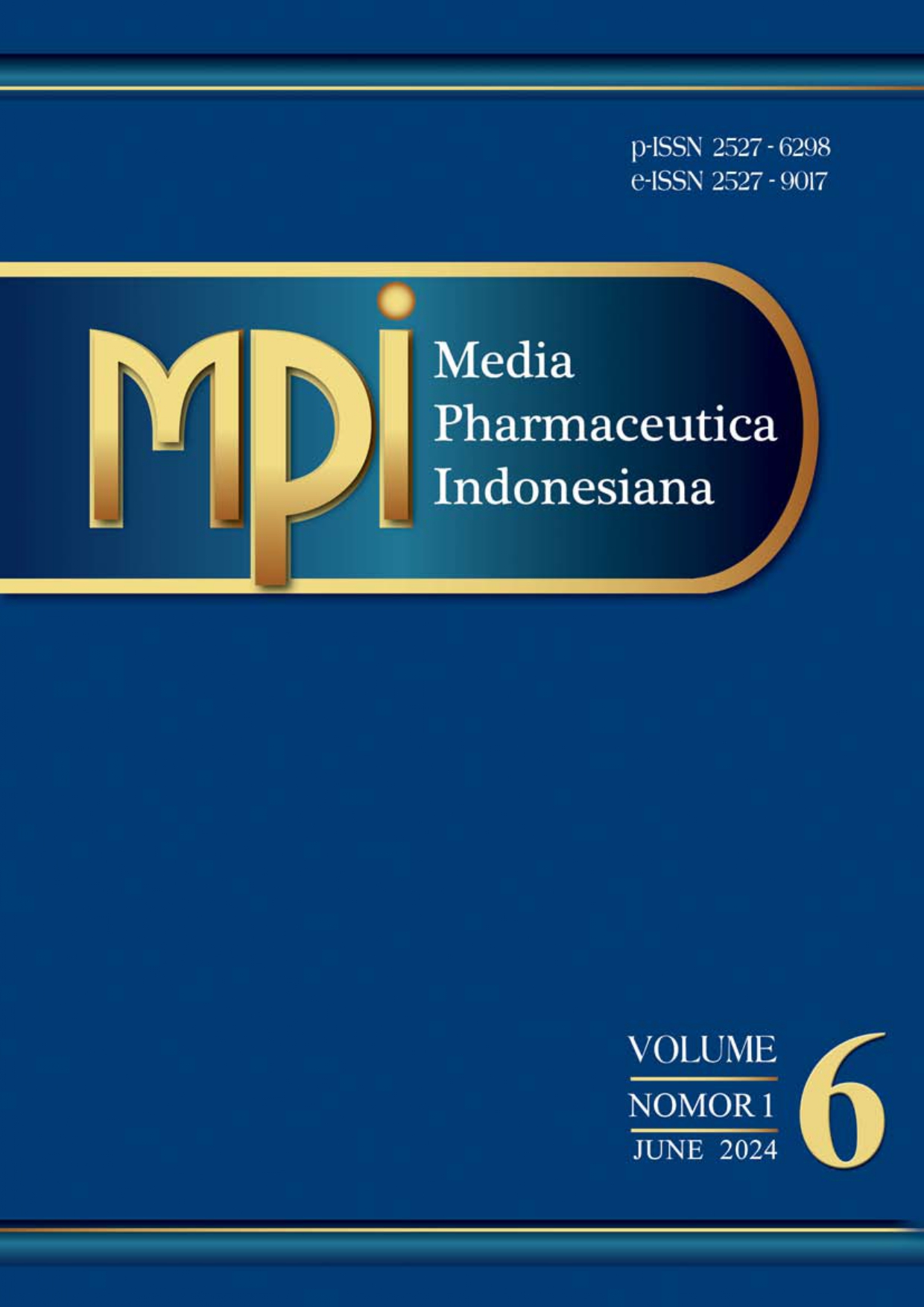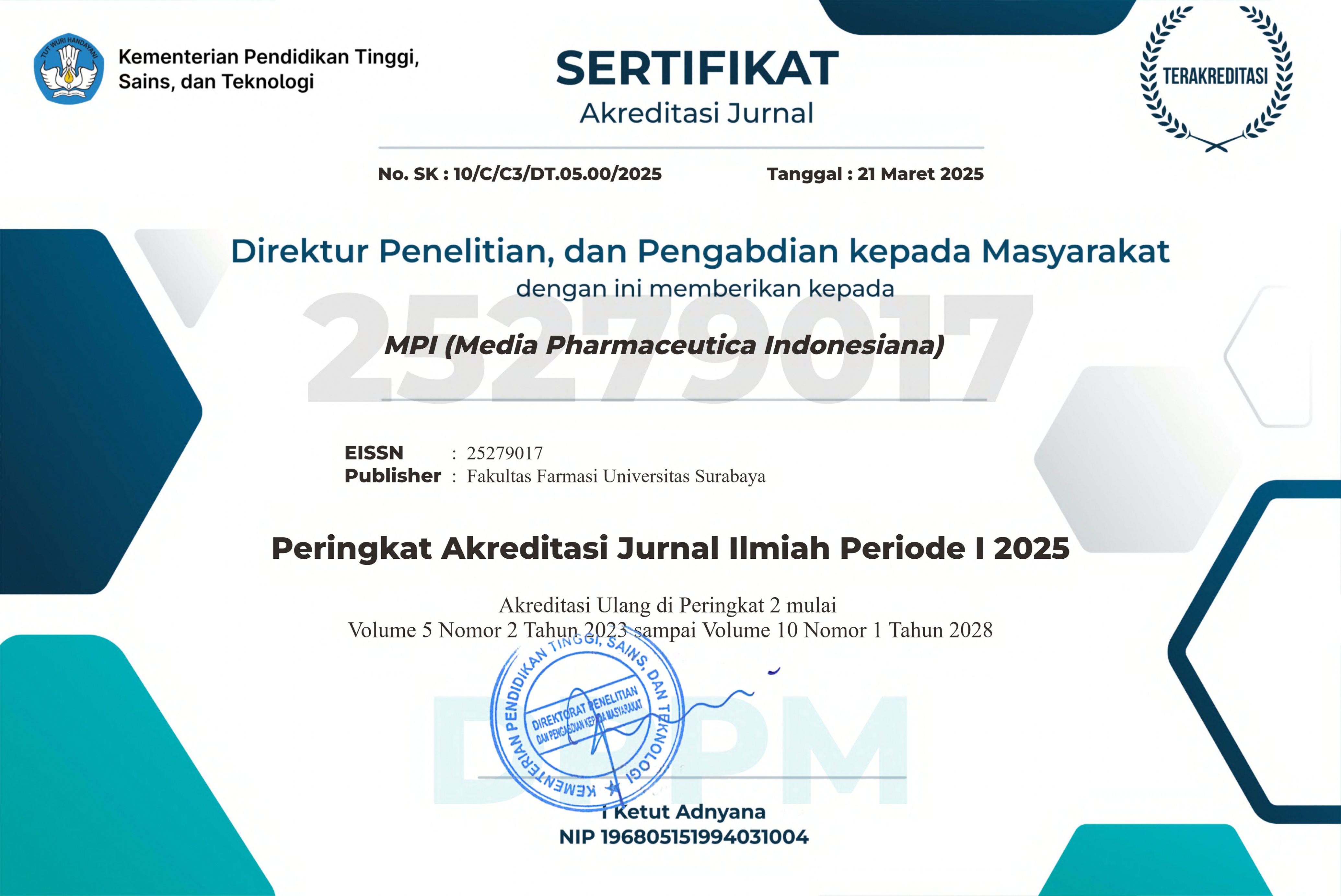Hubungan Self-management Behaviour terhadap Kualitas Hidup Pasien Hipertensi
 Abstract Views:
1917 times
Abstract Views:
1917 times
 PDF Downloads:
1082 times
PDF Downloads:
1082 times
Abstract
Pasien hipertensi memiliki kualitas hidup yang lebih rendah dibandingkan dengan seseorang yang memiliki tekanan darah yang normal. Salah satu upaya untuk meningkatkan kualitas hidup pada pasien hipertensi yaitu melaksanakan manajemen diri sebagai salah satu manajemen penyakit dalam kehidupan sehari-hari. Penelitian ini dilakukan untuk mengetahui hubungan manajemen diri terhadap kualitas hidup pasien hipertensi di wilayah kerja Puskesmas Wonorejo Kecamatan Sungai Kunjang Samarinda. Penelitian ini bersifat deskriptif dan pengambilan data dilakukan secara cross sectional. Pengambilan data manajemen diri menggunakan Hypertension Self-Management Behaviour Questionnaire (HSMBQ) dan data kualitas hidup menggunakan kuesioner SF-36 (Short form 36). Jumlah sampel sebanyak 65 pasien dan telah memenuhi kriteria inklusi dan eksklusi. Analisis data menggunakan analisis univariat dan bivariat. Hasil penelitian menunjukkan bahwa pasien hipertensi paling banyak memiliki manajemen diri yang sedang dan kualitas hidup yang baik. Hasil uji Spearman Rank menunjukkan adanya hubungan yang signifikan antara Self-Management Behaviour terhadap kualitas hidup pada pasien hipertensi, dengan nilai korelasi yaitu 0,715 yang menandakan semakin tinggi Self-Management Behaviour maka semakin tinggi kualitas hidup pasien hipertensi.
Hypertensive patients have a lower quality of life compared to someone who has normal blood pressure. One effort to improve the quality of life for hypertensive patients is to implement self-management as a form of disease management in daily life. This research was conducted to determine the relationship between self-management and the quality of life of hypertensive patients in the work area of the Wonorejo Community Health Center, Sungai Kunjang District, Samarinda. This research is descriptive in nature and data collection was carried out cross-sectionally. Self-management data was collected using the Hypertension Self-Management Behavior Questionnaire (HSMBQ) and quality of life data using the SF-36 (Short form 36) questionnaire. The total sample were 65 patients who met the inclusion and exclusion criteria. Data analysis used univariate and bivariate analysis. The results of the study showed that most hypertensive patients had moderate self-management and a good quality of life. The results of the Spearman Rank test showed that there was a significant relationship between Self-Manage- ment Behavior and the quality of life in hypertensive patients, with a correlation value of 0.715, which indicates that the higher the Self-Management Behavior, the higher the quality of life of hypertensive patients.
Downloads

This work is licensed under a Creative Commons Attribution-ShareAlike 4.0 International License.
Articles published in MPI are licensed under a Creative Commons Attribution-ShareAlike 4.0 International (CC BY-SA) license. You are free to copy, transform, or redistribute articles for any lawful purpose in any medium, provided you give appropriate credit to the original author(s) and MPI, link to the license, indicate if changes were made, and redistribute any derivative work under the same license.
Copyright on articles is retained by the respective author(s), without restrictions. A non-exclusive license is granted to MPI to publish the article and identify itself as its original publisher, along with the commercial right to include the article in a hardcopy issue for sale to libraries and individuals.
By publishing in MPI, authors grant any third party the right to use their article to the extent provided by the CC BY-SA license.

 DOI:
DOI:










